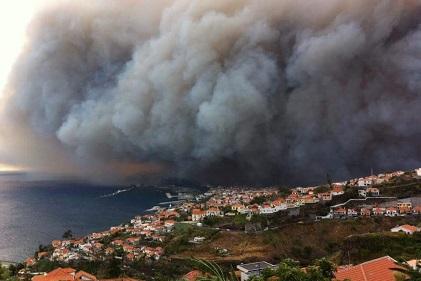
Forest fires are a major concern for European scientists working on disaster risk.
By Rosalind Cook
BRUSSELS, 27 April 2018 - A new European Science and Technology Advisory Group (E-STAG) convened this week in Sofia, Bulgaria, to focus on improving disaster risk knowledge in 55 countries across Europe and Central Asia.
UNISDR and the European Commission’s Joint Research Centre have established the group to tackle new emerging challenges.
Opening the meeting, Mr. Abhilash Panda, Deputy Chief of the UNISDR Regional Office for Europe, commented: “This first meeting of the European Science and Technology Advisory Group kicks off an important phase of work in the region to support accelerated action on the scientific aspects of the Sendai Framework for Disaster Risk Reduction, the global plan to reduce disaster losses by 2030.”
The meeting brought together 15 experts from multiple disciplines to assess the key issues on disaster risk in the regions, gaps and opportunities to innovate and collaborate.
Professor Debarati Guha-Sapir of the School of Public Health, University of Louvain, Belgium, explained: “In northern and western European countries, the mortality rate from disasters is relatively low. However, the picture is different when you move south and east. But, across the region, there is an increasing problem of extreme heat – and this is important because there is excess mortality. These kinds of issues could be picked up by a scientific group like this to support improving country resilience.”
Cross-cutting issues were identified as the socio economic impact of disasters and fragmented data which affects decision-making. Experts also discussed how climate change is significantly changing Europe’s risk profile and historical data is insufficient to prepare for the future.
The deadly forest fires in Southern Europe last summer were cited as an example. They challenged the capacity and solidarity of countries and made clear that there will need to be greater capacity in addressing extreme heat.